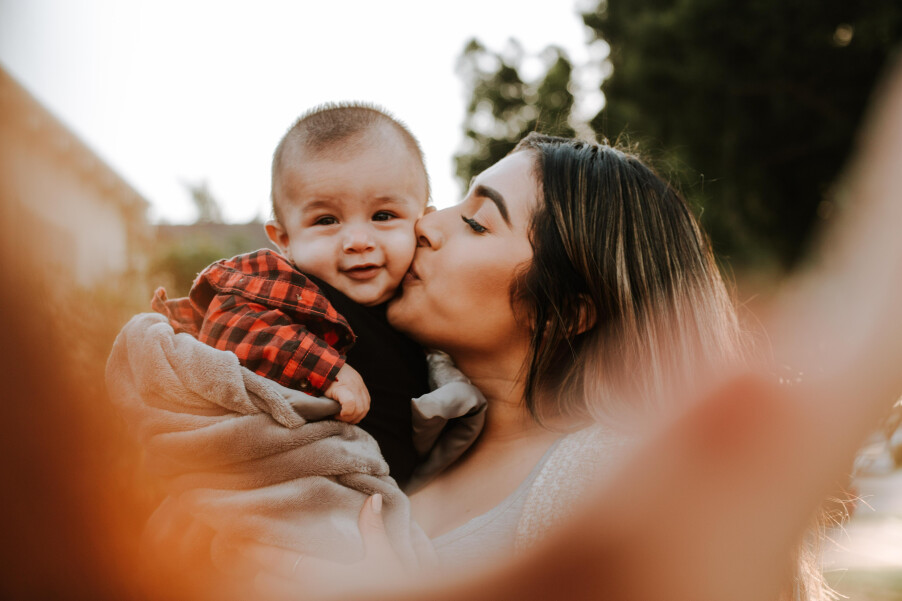"Yet you brought me out of the womb; you made me trust in you even at my mother's breast." Psalm 22:9
God’s wise and loving plan for the history of the world includes as a centerpiece the immeasurable influence of a loving, godly mother on the development of saving faith in her children. How many saints will stand in heaven clothed with righteousness through faith in Christ, who will testify that their faith had its human origin in the gentle, loving faith of their mother? How many will see their mother in eternity and bless the sacred ministry she carried out for them… living, breathing, speaking faith until the Holy Spirit created it in their prepared hearts.
Yes, only the Holy Spirit can regenerate a human heart, and saving faith is the direct result of the new birth carried on by the sovereign Spirit. But the Spirit is a God of means, and faith has its means as well. Romans 10 makes it very clear that saving faith comes through hearing the word of Christ (Romans 10:17), and that no one will “call on the name of the Lord” if they have never heard of that name of Jesus to begin with. So, the name “Jesus Christ” must be spoken, and the holy history of his life, death, and resurrection must be spoken or no one can call on that name for salvation.
However, faith’s preparation goes far deeper than that. The words of the gospel themselves must be lived out in God’s physical world, what John Calvin called “the theater of God’s glory,” for them to make any sense to us at all. When we hear that we must trust in the Lord Jesus Christ to be saved, what does that word “trust” mean except what we have personally learned to trust in something else before we learned that ultimate trust belongs to God alone. We have been schooled in trust, in faith, in rest, long before we learned to reside that trust in the Lord Jesus Christ, crucified, and risen. We enrolled in “Trust School” the moment we entered the world, and our gentle, loving, providing mothers were our teachers.
Mighty King David spoke of this very thing in Psalm 22:9, when he said, “You made me trust in you even at my mother’s breast.” In the Hebrew, the words “in you” are not found… literally it says, “You made me trust even at my mother’s breast.” David learned trust itself before he learned to trust in the Lord. As an infant, he lay sleeping and content, all his needs met by his mother’s gentle and complete provision for him. He knew no words at the time… the arts of language would be bestowed on him gradually, also in part by his mother. But as an infant he was learning from life itself what trust was. Later, David would think about this gentle seminar in trust when he spoke of his quieted spiritual state before God: “But I have stilled and quieted my soul; like a weaned child with its mother, like a weaned child is my soul within me” (Psalm 131:2).
"How many will see their mother in eternity and bless the sacred ministry she carried out for them."
When David’s mother fed him, when she held him as he cried, when she comforted him, when she changed him and laid him to bed, when she smiled at him as he awoke from his sleep… in all these ways she stood in God’s place and prepared David for the great transfer that would occur later. For at some point, every believer learns the word of God, the gospel of Christ, and transfers a trust that was first implanted and modeled by a mother to its original source… God himself. The trust is transferred and transformed: trust not only for milk and physical comfort but for eternal life itself, for full forgiveness of sins through Christ’s blood, for awakening from the sleep of death. Without the words of the gospel message, salvation is impossible. But the words of the gospel message are themselves unintelligible without first living in God’s world.
For this trust, this faith, God’s children were ordained before the world began. But in the wisdom of God, he ordained that it be prepared through years of life experience before being ignited by the regenerating power of the Holy Spirit. A godly gentle mother prepares the way for saving faith from the moment the infant comes into her arms.



